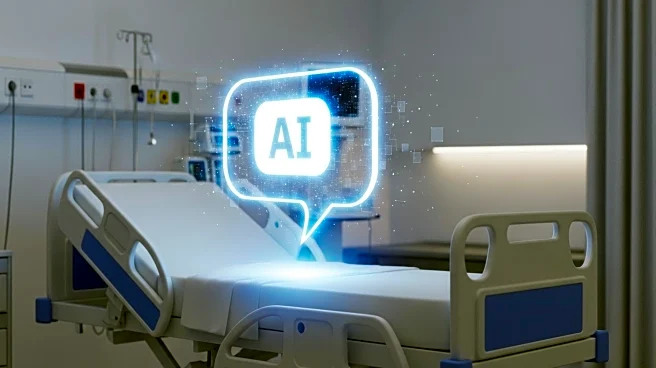What is the story about?
What's Happening?
AI chatbots like ChatGPT are increasingly used in healthcare settings, offering potential benefits and risks. While some patients have successfully used chatbots for medical insights, others have experienced harmful outcomes due to inaccurate advice. The technology is appealing amid a doctor shortage and barriers to healthcare access in the U.S. However, experts caution against relying solely on AI for medical decisions, emphasizing the importance of human oversight. Studies show that while AI can enhance diagnostic processes, it is not a substitute for professional medical judgment.
Why It's Important?
The integration of AI chatbots in healthcare represents a significant shift in how medical information is accessed and utilized. These tools offer the potential to improve patient engagement and streamline healthcare delivery, addressing challenges like limited access to medical professionals. However, the risks associated with AI-generated medical advice highlight the need for careful implementation and regulation. Ensuring accuracy and reliability is crucial to prevent misinformation and protect patient safety. The situation underscores the broader debate on AI's role in healthcare and the balance between innovation and ethical responsibility.
What's Next?
As AI continues to evolve, healthcare providers may increasingly incorporate chatbots into their practices, using them for tasks like patient communication and data analysis. Regulatory bodies may develop guidelines to ensure safe and effective use of AI in healthcare. Collaboration between AI developers and medical experts will be essential to refine these tools and address potential pitfalls. Patients and healthcare professionals are encouraged to engage in open dialogue about AI use, fostering informed decision-making and enhancing trust in technology-assisted healthcare.















